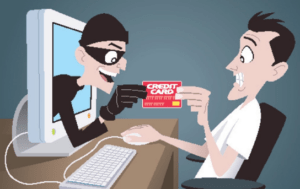By Alberta Quarcoopome
Internal controls are important in banking. Managers are obliged to protect the assets, reputation and the people in the business.
This is very important to employees who are likely to feel protected from false accusations. A bank with sound internal controls promotes trust among employees. Excuses like, “we are too small” we are too busy” or “we trust our staff” or “we are one big family” or “we take good care of our staff” should never be entertained.

Internal control in banking can be found in two forms, prevention and detection. In preventive, it stops something bad from happening, while the detective controls concentrate on identifying an occurrence. Both of them work together for maximum effect. These controls can be summarized into three significant actions:
- Dual Control: this happens when two or more staff are involved in the process.
- Segregation of duties. In this case, one person cannot initiate and complete a transaction. One person cannot be responsible for an asset in custody and still be responsible for the basic accounting and responsible for reporting on it.
- There should be appropriate oversight, and monitoring.
Finally, there should be regular independent reviews, reconciliations, statements, reports, etc.
How is your banker-Customer relationship?
Dear Manager, as you protect the bank’s assets, how are you in turn, protecting your customers’ assets? Any fraud on your customer’s account should definitely make you concerned and ask yourself: “How did it happen? What could we have done to prevent this?” The banker-customer relationship involves certain duties that both parties owe each other. One such responsibility of the banker is the duty of exercising care to protect customers’ account from forgery, fraud.
In additions bankers are to advise customers of any forgery, impersonation or potential fraud that may endanger their accounts. As customers are being advised to go digital, use banking apps and enjoy the benefits, some customers who are not digital savvy may be endangered. During the covid period when bankers sold more digital banking services, some illiterates felt compelled to join the band wagon.
They ended up giving their pin codes to family members and friends who ended up defrauding them. With the influx of artificial intelligence, chat GPT, betting companies, many ignorant email users just join suspicious links and get their accounts hacked.
Since fraudsters are always ahead of regulators, this is the time for the modern managers, relationship managers, and front line staff to be extra friendly and sensitive to customers’ needs, so they retain the funds in their accounts for a long term.
Tips on educating Customers to Overcome Digital Banking Fraud
In this pandemic era, I urge managers to use these basic tips to educate them on how they can protect themselves against digital banking fraud. Such advice can go according to the following informal lines:
- Don’t type passwords while others are watching.
- Don’t email passwords.
- Always keep your PIN and password secure. If you think your PIN or password has been compromised, change it immediately, online or at your nearest ATM or branch.
- Remember to change your passwords and PIN’s regularly.
- Never save usernames, passwords or PINs on your cellphone or computer as it may allow others to access your banking without your permission.
- Always do internet banking on a secure computer that you regularly use at home or work. Ensure you have a password or biometric identification to assess your cellphone. Never do online banking in public areas such as internet cafe’s or shared computers, as you can never know what software is loaded that may compromise your transactions.
- Log on to your bank’s website by typing in the web address yourself instead of accessing it via Google search as this may lead you to a spoofed site.
- Never open suspicious or unfamiliar e-mails or attachments, and never click on links in emails or SMS.
- There are numerous and enticing emails and SMS messages sent by criminals which look legitimate and often bait you with scare tactics to confirm your account details or to login to prevent your account from being closed. They even entice you to win something or get something for free in order to get access to your account.
- Only make online purchases with your card on reputable websites that are verified as secure sites. Please do this by looking out for the lock icon in your browser and ensure that the address starts with https:/.
- Never use the same username and password for banking as you use on other apps and websites like social media and email.
- Download your bank’s app to keep track of your accounts and transactions and monitor it daily.
- You can stop fraudulent online banking transactions, report fraud for any suspicious transactions, and temporarily block or cancel your cards. Quickly call your bank when you sight a suspicious transaction.
- Download free antivirus software for your computer and/or smartphone.
- Update your smartphone and computer with the latest software and app updates.
- Monitor your cellphone reception. If you have lost signal for an unusually long time, you may be a victim of sim box fraud. Contact your bank immediately. A bank’s customer noticed that his telephone was unusually silent for about four hours. Unfortunately, this was when a cloned cheque of his account which was being confirmed by his bank’s relationship manager on telephone, got diverted to another phone. This fraudster mimicked the voice of the customer and got the account debited with GHc78,000! These cheque fraud syndicates are very notorious.
- Criminals may sometimes call you and pretend to be from your bank, service provider or a reputable retailer. During this conversation they may ask you to verify personal and banking information or download software for them to “assist” you. It will be safer for you to hang up and call the company directly to verify if the call is legitimate.
- When you receive the bank e- statements directly, review and follow up on unusual items. Meanwhile check the statements online before you receive the bank’s e-statements. Regular reconciliation is key.
There is more to add on, but let me pause here. For more insights on this topic, please book a copy of my new book, “THE MODERN BRANCH MANAGER’S COMPANION” which involves the adoption of a multi-disciplinary approach in the practice of today’s branch management. It also shares invaluable insights on the mindset needed to navigate and make a difference in the changing dynamics of the banking industry. Call 0244333051 for your copy.
This article was first published in April 2021
TO BE CONTINUED
ABOUT THE AUTHOR
Alberta Quarcoopome is a Fellow of the Institute of Bankers, and CEO of ALKAN Business Consult Ltd. She is the Author of Three books: “The 21st Century Bank Teller: A Strategic Partner” and “My Front Desk Experience: A Young Banker’s Story” and “The Modern Branch manager’s Companion”. She uses her experience and practical case studies, training young bankers in operational risk management, sales, customer service, banking operations and fraud.
CONTACT
Website www.alkanbiz.com
Email:alberta@alkanbiz.com or [email protected]
Tel: +233-0244333051/+233-0244611343










